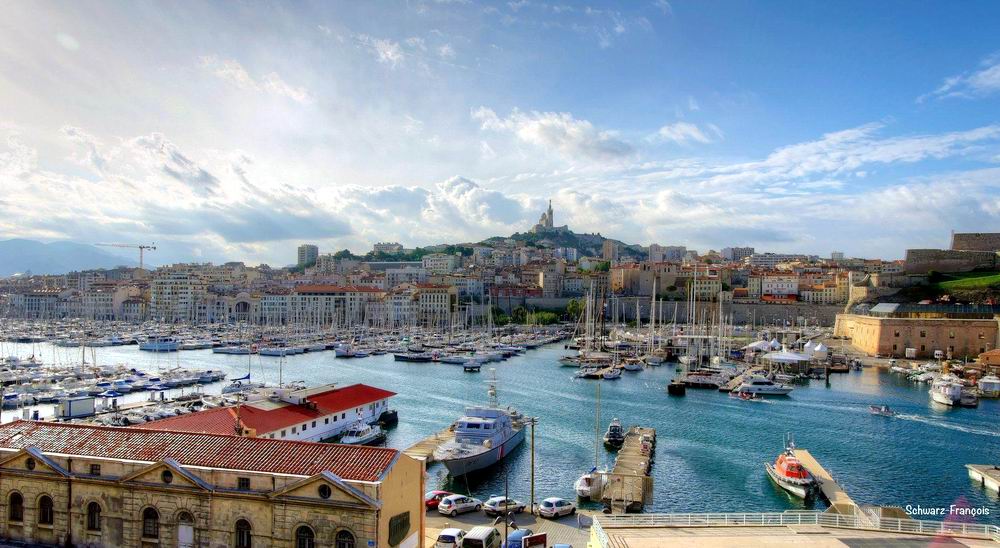Founded around 600 BC by Greek settlers from Phocaea, Marseille is the oldest city in France, as well as one of Europe’s oldest continuously inhabited settlements. It was known to the ancient Greeks as Massalia and to Romans as Massilia.
Marseille has been a trading port since ancient times. In particular, it experienced a considerable commercial boom during the colonial period and especially during the 19th century, becoming a prosperous industrial and trading city.
Nowadays the Old Port still lies at the heart of the city where the manufacturing of soap, its famous savon de Marseille, began some 6 centuries ago. Overlooking the port is the Basilica of Notre-Dame-de-la-Garde or “Bonne-mère” for the people of Marseille, a Romano-Byzantine church and the symbol of the city. Inherited from this past, the Grand Port Maritime de Marseille (GPMM) and the maritime economy are major poles of regional and national activity and Marseille remains the first French port, the second Mediterranean port and the fifth European port.
Since its origins, Marseille’s openness to the Mediterranean Sea has made it a cosmopolitan city marked by cultural and economic exchanges with Southern Europe, the Middle East, North Africa and Asia.
In Europe, the city has the third largest Jewish community after London and Paris.
Marseille now has the most museums in France after Paris. The city was named European Capital of Culture in 2013 and European Capital of Sport in 2017.
Additionally, Marseille hosted matches at the 1998 World Cup and Euro 2016. It is also home to several higher education institutions in the region, including the University of Aix-Marseille.






